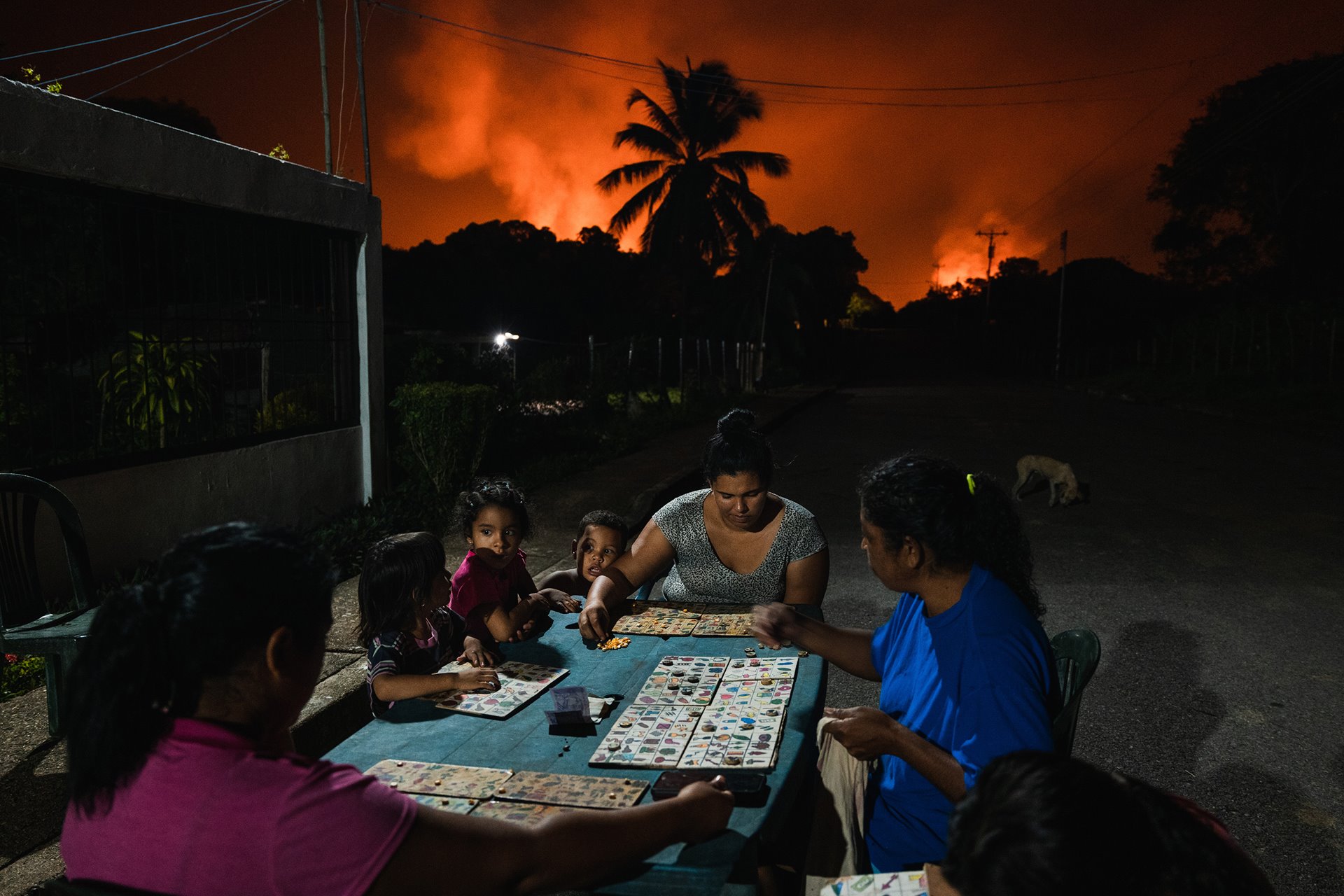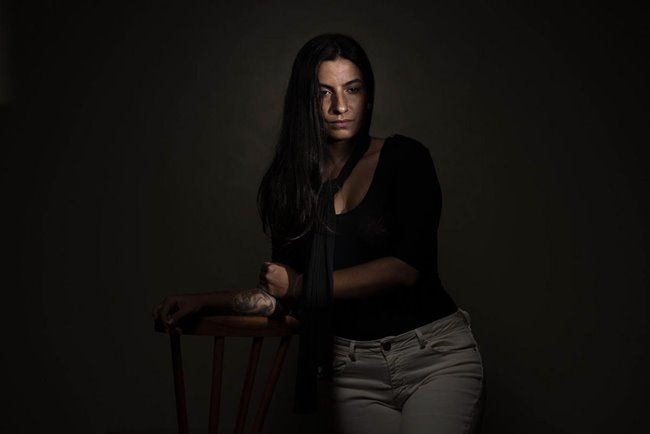Neighbors play Animal Lotto under a sky lit by one of the world’s largest gas flares (the flaming chimneys used to burn off excess natural gas at oil wells), in Punta de Mata, Venezuela.
Around the turn of this century, oil-rich Venezuela was prosperous, but its fortunes declined following plummeting oil prices, economic mismanagement, sanctions, and political instability.
One of the nation's largest oil fields is located around and beneath Lake Maracaibo, where oil-spills from obsolete infrastructure and methane produced by the refining process ravage the environment. Along with oil slicks, the lake has become covered with algae caused by discharged fertilizers, sewage, and other chemicals.
In October 2023, the United States lifted oil sanctions on Venezuela, creating a strong incentive for the country to once again increase production. Deputy Oil Minister Erick Pérez predicted that Venezuela would soon be producing one million barrels per day, while environmentalists and residents around Lake Maracaibo denounced ever-worsening spills and increased gas flaring, affecting human health, wildlife and ecosystem.
In the meantime, nearly 82% of Venezuelans live in poverty, according to the OHCHR. According to a 2023 Human Rights Watch report, most Venezuelans face difficulties in accessing food, with 10.9 million undernourished or chronically hungry. Some 4.3 million people sometimes go days without eating. Although reports do suggest that the Venezuelan economy has been improving slightly year-on-year since 2020, the country’s central bank reported triple-digit inflation over 2023. A 2022 study by the National Poll of Living Conditions (ENCOVI) indicated that income inequality continued to widen and that improvements were not being felt on the ground.
Are you a photographer and/or passionate about press freedom? Sign up for our newsletter to stay updated on our annual contest and to hear about exhibitions near you.

